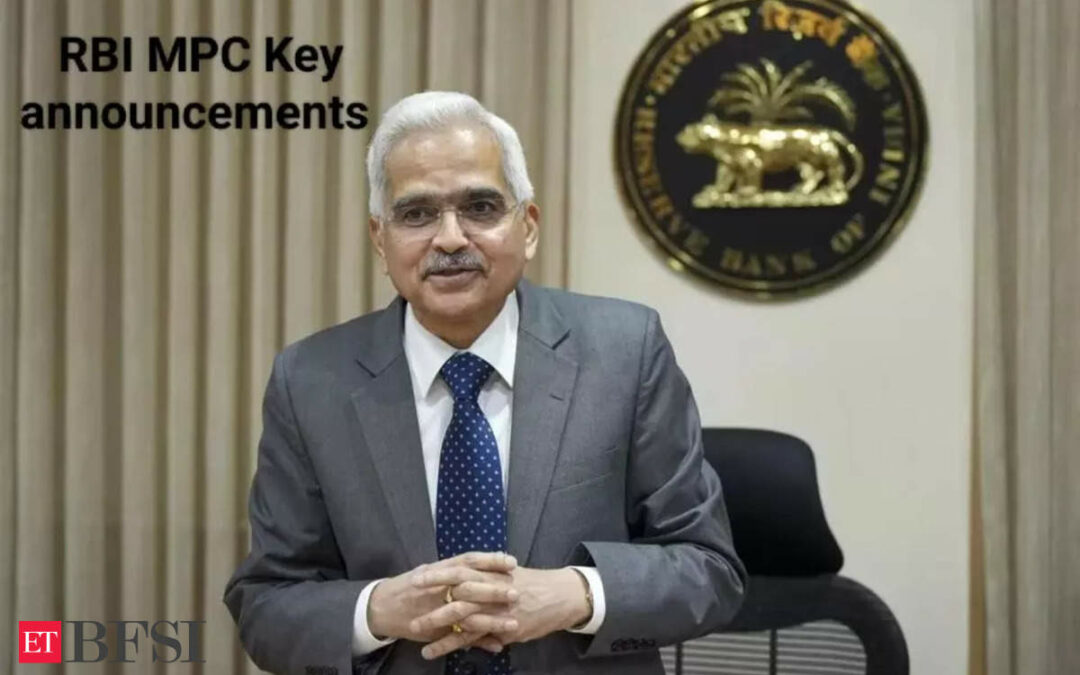While announcing the second Monetary Policy Committee (MPC) decision on Friday, the Reserve Bank of India (RBI) announced certain key additional measures.
The (MPC) has decided to keep policy rate unchanged for the eighth time in a row at 6.5%, and with a majority of 4 out of 6 members, it decided to remain focussed on “withdrawal of accomodation” to ensure inflation progressively aligns to the target while supporting growth.
Also Read: RBI MPC Meet 2024: Repo rate unchanged at 6.5%, GDP forecast raised to 7.2%
Here are the six additional measures:
Review of Limit of Bulk Deposits in Banks
The RBI MPC proposed to revise the definition of bulk deposits. The Governor said on a review of the bulk deposit limit, it is proposed to revise the definition of bulk deposits as ‘Single Rupee term deposit of Rs 3 crore and above’ for SCBs (excluding RRBs) and SFBs.
Further, the committee also proposed to define the bulk deposit limit for Local Area Banks as ‘Single Rupee term deposits of Rs 1 crore and above’, as applicable in case of RRBs.
Rationalise the extant FEMA guidelines
The RBI MPC also proposed to rationalise the extant FEMA guidelines on export and import of goods and services.
Governor Shaktikanta Das said the move has been taken in view of the changing dynamics of international trade and in line with the progressive liberalisation of foreign exchange regulations.
This will further promote ease of doing business and provide greater operational flexibility to Authorized Dealer banks.
Draft guidelines will be issued shortly for stakeholder feedback, he said.
Digital Payments Intelligence Platform
It has been proposed to establish a Digital Payments Intelligence Platform for network level intelligence and real-time data sharing across the digital payments’ ecosystem.
Governor Das highlighted that the Reserve Bank has taken a number of measures over the years to deepen digital payments while ensuring their safety and security.
These measures have boosted consumer confidence. Growing instances of digital payment frauds, however, highlight the need for a system-wide approach to prevent and mitigate such frauds, he said.
Reserve Bank has constituted a committee to examine various aspects of setting up the Platform, he mentioned.
Also Read: RBI to set up Digital Payments Intelligence platform
Auto-Replenishment Facility under the e-mandate Framework
Amid the increase in the adoption of e-mandates for recurring payment transactions, MPC proposed to include payments, such as replenishment of balances in Fastag, National Common Mobility Card (NCMC), etc. which are recurring in nature but without any fixed periodicity, in the e-mandate framework.
This will enable customers to automatically replenish the balances in Fastag, NCMC, etc. if the balance goes below the threshold limit set by them, the governor said.
This will enhance convenience in making travel / mobility related payments.
Governor also announced the proposal to bring UPI Lite wallets under the e-mandate framework.
Under this facility, customers can automatically replenish their UPI Lite wallets if the balance goes below the threshold limit set by them. This will further enhance the ease of making small value digital payments.
Also Read: RBI proposes to include auto replenishment of FASTag, NCMC & UPI Lite balances in e-mandate framework
HARBINGER 2024: Innovation for Transformation
The third edition of the global hackathon, “HaRBInger 2024” with two themes, namely ‘Zero Financial Frauds’ and ‘Being Divyang Friendly’ will be launched shortly.
Two editions of the hackathon were completed in the year 2021 and 2023.











